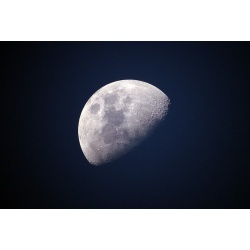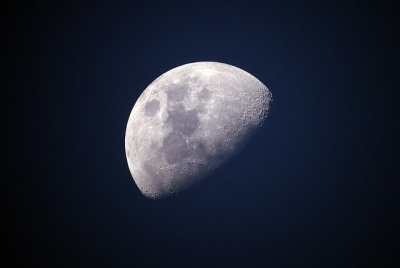
Decorah residents share memories of the moon landing
Posted: Fri, Jul 19, 2019 2:16 PM
To commemorate the 50th anniversary of the Apollo 11 moon landing, decorahnews.com has compiled recollections of that historic event from Decorah residents.
Carol Gilbertson: "I was young and single, living in Minneapolis for the summer and doing temp work. I vividly remember watching it all on TV and hearing respected news anchor Walter Cronkite exclaim, "Hot dog! They're on the moon!" It was all very exciting, and it seemed like everyone was glued to their TV screens. I remember going out and looking at the moon that night, so far away, so mythical, and feeling that we all had a different relationship with that astral body from a day before."
Alan Sand: "I was in the Navy, stationed in Virginia Beach, VA. I traveled north to Washington D.C. for the event. Actually, it was to see a girl. I found her more captivating than 'one small step...'...it all seemed a folly compared to my pursuit of the dolly."
Paul Gardner: "This would have been the late 1950s, early 1960s, the era of air raid shelters and sirens. The sirens were to warn about an attack by the Soviet Union. There was a push to build air raid shelters to go into during such an attack. I vividly remember standing in my backyard during one of the siren alerts, three bursts I think, and imagining Nikita Kruschev bursting through our door into the house some night. Fear was a big part of all of this and as a kid of 8 – 10. I felt it. About the same time, late 1950s, after Sputnik America almost overnight changed the way it taught math across the country and I remember white booklets being passed out to replace our math textbooks. The idea was that unless America revised its teaching of math the Soviets would continue to beat us."
Ellen Macdonald: "I'm afraid that my overwhelming thoughts when I remember the lead-up to the 20th and the landing itself, is how young we were! There were hours of waiting for the various steps in the landing to happen. I remember being very impatient for Armstrong to step out. I was a sophomore in HS when the Russians launched Sputnik. Very vivid memories of going to school and hearing about that. I'm sure the cold war and competition with Russia over everything spurred Kennedy's goal of going to the moon. I was agog over the technology that was involved in the space program. Now I realize I probably carry more sophisticated software and hardware in my pocket."
Alan Lerstrom: "I remember thinking in superlatives, 'amazing, awesome ('60s superlative), unbelievable,' etc."
Mark Muggli: "I saw a clip of the moon landing on a small black and white television in a department store display window in downtown Prague. It was not quite a year after I had had my last view of America on a New York hotel tv--heads being smashed in the streets outside of the 1968 Chicago Democratic convention. During my year abroad, I saw many impressive cultural and political achievements all over Europe. I wasn't anti-American, but the moon walk seemed to me symbolic of the essential American problem: we were much better at impressive technological feats than at creating peace, culture, and justice. I've mellowed a bit since then, but I've never considered the space program America's greatest achievement."
Harland Nelson: "I'd just come back from a Fulbright year in Norway with my family, and no doubt was more occupied with getting back in gear at Luther. I took note of the event, sure, but it seemed remote from me--far away as the moon!"
Harley Refsal: "I remember I was in Minneapolis at the home of a young recently-married couple....friends and fellow Augsburg College students. There were about a half dozen of us in the apartment, glued to the radio, and upon hearing the direct broadcast of words spoken from the surface of the moon, I'm sure we probably waxed eloquent with phrases like 'Wow...that's amazing,' 'isn't that incredible,' 'can you believe it,' etc. My wife Norma learned about the event some days later, since she was working at Wilderness Canoe Base, in the Boundary Waters of Northern Minnesota at the time, out of regular radio broadcasting range."
Copyright © - decorahnewsarchive.com. All rights reserved.| Terms Of Use Statement.

Site designed and maintained by Iroc Web Design Services©.
Your Small Business Web Design Solutions.™
Site designed and maintained by Iroc Web Design Services©.
Your Small Business Web Design Solutions.™


